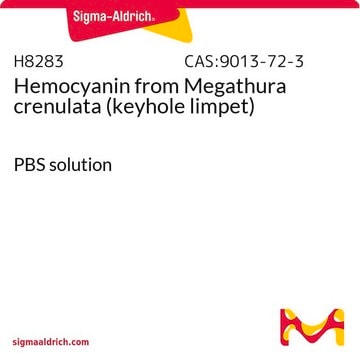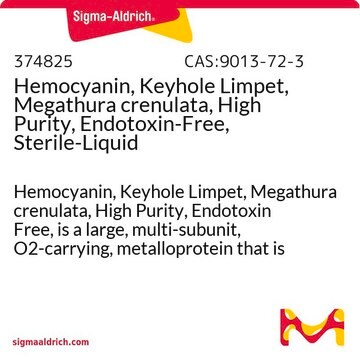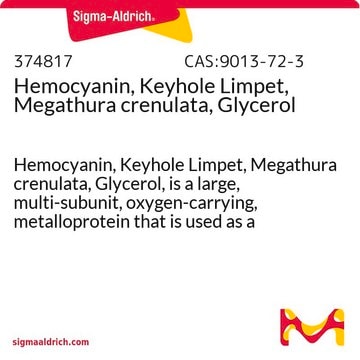H7017
Hemocyanin from Megathura crenulata (keyhole limpet)
Synonym(s):
KLH, Keyhole limpet hemocyanin
About This Item
Recommended Products
biological source
Megathura crenulata
Quality Level
form
powder
packaging
vial of KLH (KLH is present by weight at approximately 1 part KLH to 5 parts total solid.)
technique(s)
ELISA: suitable
solubility
H2O: soluble
storage temp.
2-8°C
Looking for similar products? Visit Product Comparison Guide
General description
Application
Physical form
Reconstitution
Reconstituted protein solution may be stored up to 2 months at −20 °C.
Storage Class Code
10 - Combustible liquids
WGK
WGK 3
Flash Point(F)
Not applicable
Flash Point(C)
Not applicable
Personal Protective Equipment
Certificates of Analysis (COA)
Search for Certificates of Analysis (COA) by entering the products Lot/Batch Number. Lot and Batch Numbers can be found on a product’s label following the words ‘Lot’ or ‘Batch’.
Already Own This Product?
Find documentation for the products that you have recently purchased in the Document Library.
Our team of scientists has experience in all areas of research including Life Science, Material Science, Chemical Synthesis, Chromatography, Analytical and many others.
Contact Technical Service






